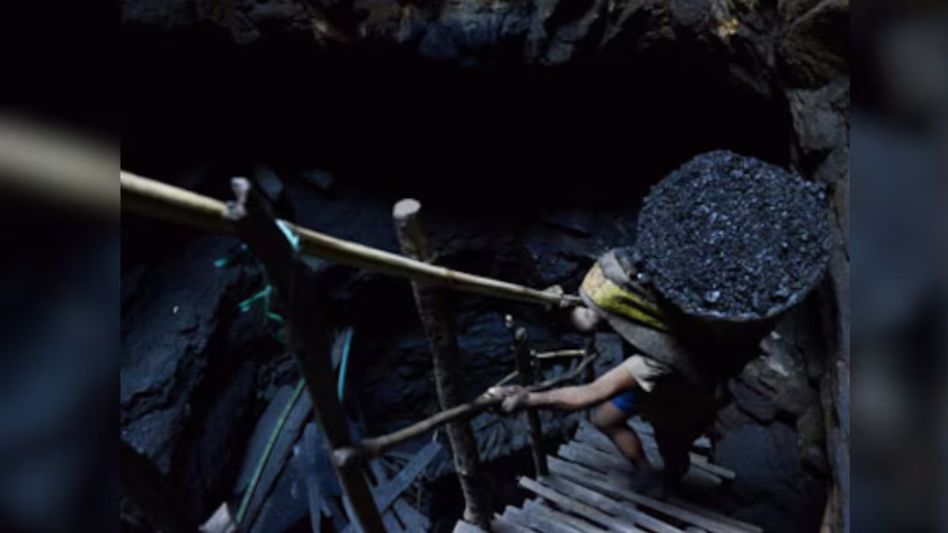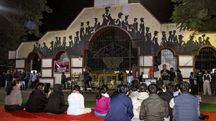ED busts Rs 100 crore coal racket; Assam-Meghalaya nexus exposed
The Enforcement Directorate on Friday said that despite a ban on mining in Meghalaya, illegal rat-hole quarrying is being "rampantly" done under "inhuman" conditions in the state and searches conducted by it have found that about 1,200 tonnes of coal through such means is being excavated daily.

The Enforcement Directorate on Friday said that despite a ban on mining in Meghalaya, illegal rat-hole quarrying is being "rampantly" done under "inhuman" conditions in the state and searches conducted by it have found that about 1,200 tonnes of coal through such means is being excavated daily.
The agency carried out searches on Thursday at 15 premises located in Jadigittim and Nongalbibra in Meghalaya, besides Jogighopa , Margherita and Guwahati in Assam, as part of a money-laundering investigation linked to alleged illegal coal mining and coke plants running in Meghalaya.
The case stems from a Meghalaya Police FIR. According to a statement issued by the ED, managers, "sardars' and labourers were engaged in illegal coal mining in the Jadigittim area of South Garo Hills using primitive tools.
It was noticed that around 20 mines are being run illegally in the Era Aning and Goreng areas, the federal agency said.
"Despite the ban on mining in the last decade, illegal rat-hole mining is being rampantly done under inhuman conditions and without any safety for the illegal miners ," the ED said.
The agency, during the searches, handed over to the local police some labourers found at the sites to verify their identities and nationality.
Also Read: Assam BJP to unveil Panchayat Poll manifesto tomorrow; 13 rural achievers to be honoured
The ED said it has found that a "syndicate" having people from Meghalaya and Assam as in-charge ensured that trucks containing illegal coal cleared the borders of Meghalaya and entered Assam. Documents were prepared to show this load as legally-mined coal, it said.
The syndicate used to charge ₹1.27 lakh to ₹1.5 lakh in cash per truck from the mine owners in the name of "commission".
The illegally-mined coal was stored at depots located at Jogighopa.
Thereafter, it was transported to different industries like cement manufacturing, brick kilns, iron and steel industry and illegal coke plants, according to the ED.
A portion of the illegally-mined coal, the agency said, was directly transported to the unregulated coke plants from a depot in the northeastern region.
The ED found that those who operated the Jogighopa depot were also involved in the business of "fake" bills or invoices through which the illegally-mined coal was shown to be purchased from legally-operated mines in Assam, making it look like a genuine business transaction.
"Most of the transactions take place in cash through these operators and fake bills/invoices for the same are generated to give it the colour of genuine transactions," the agency said.
It was found that the cash generated in the process was collected by the syndicate and stored at the places of the cash handlers. These cash handlers were searched and diaries containing cash transactions seized, the ED said.
Some coal mine owners and members of the syndicate used to coordinate with illegal coal mine operators in Margherita to make it appear to be mined from legally-sourced mines, the agency found out.
Documents seized during the searches and statements given by the managers, mine owners and labourers showed that five to seven trucks were loaded every day from each mine and each truck used to carry 12 to 16 tonnes of illegally-mined coal, the ED said.
A moderate estimate of the amount of illegal coal mined every day from the Era Aning and Goreng areas of South Garo Hills was around 1,200 tonnes and the mine owners used to get ₹5,000 to ₹10,000 per truck as their net profit, after taking care of all the expenses, the ED said.
The agency said it has seized ₹1.58 crore in cash, laptops, mobile phones and two high-end vehicles during the raids.
Copyright©2025 Living Media India Limited. For reprint rights: Syndications Today









